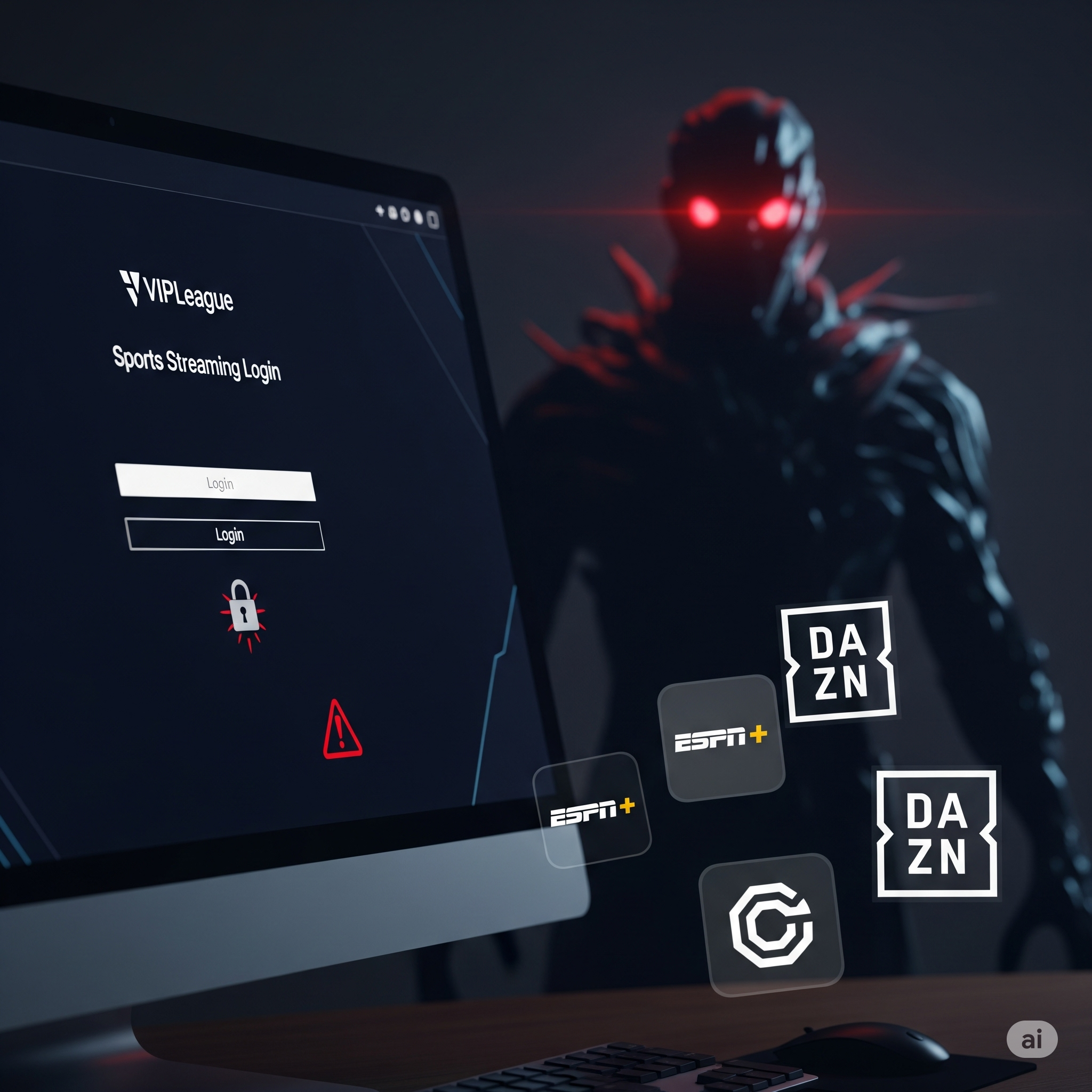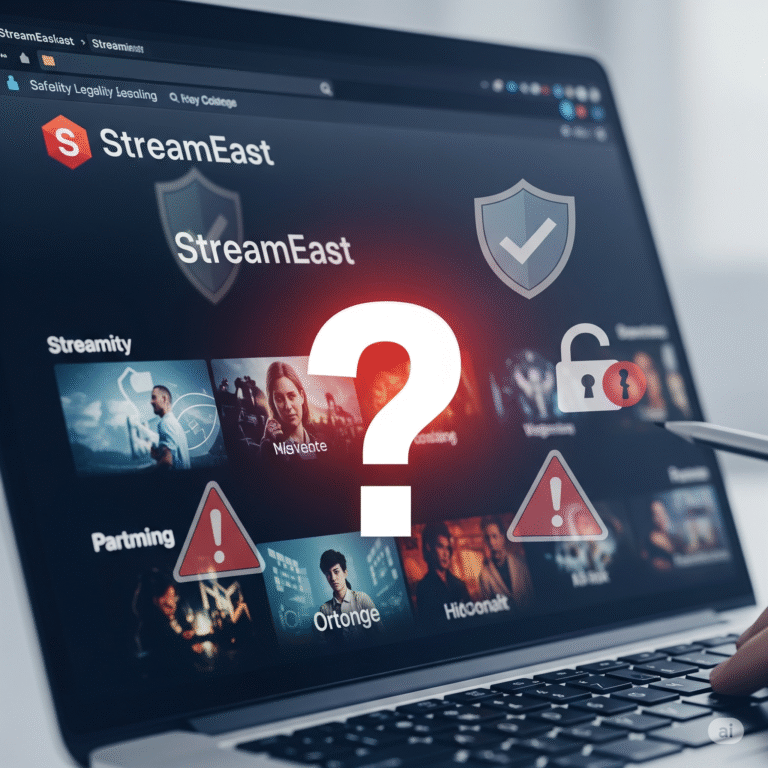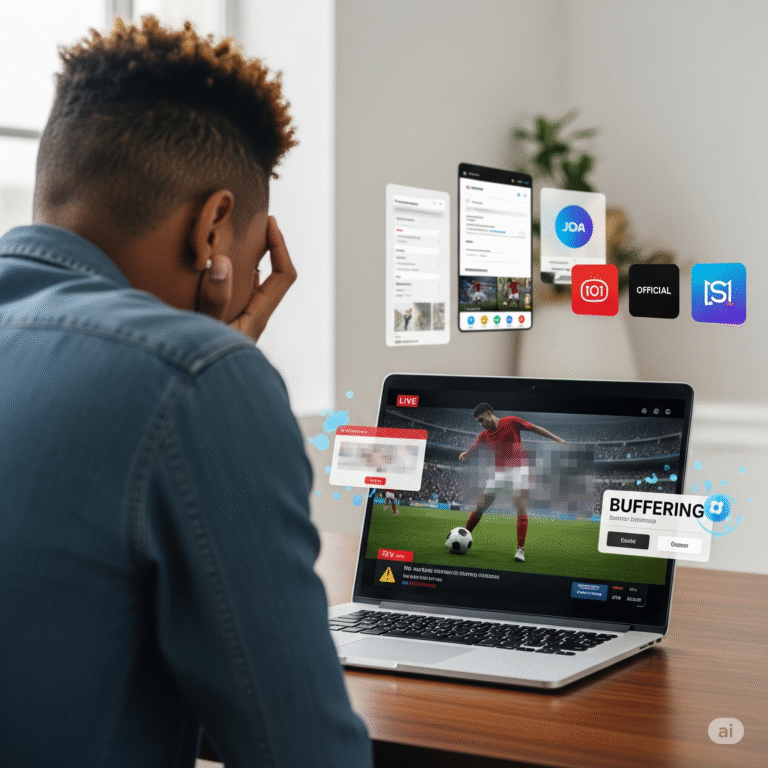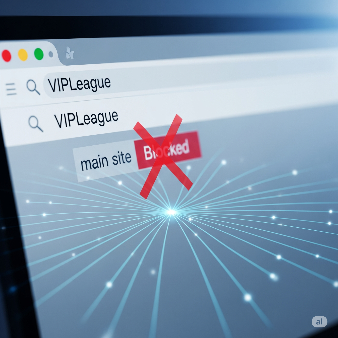VIPLeague Account Requests: Understanding Fake Logins and Data Privacy Threats
The electrifying energy of a live sporting event is an experience unparalleled in its ability to captivate and unite fans worldwide. While the desire to connect with every moment of action on a large screen is universal, the path to finding reliable and safe streams can often be frustrating. Many fans turn to online platforms, searching for “free sports streaming” or navigating complex options. Among these, the name “VIPLeague” frequently surfaces, promising a seemingly effortless gateway to various sporting events. Consequently, a critical question arises when users encounter unexpected “account creation” or “login” prompts on such platforms: “What happens when a seemingly ‘free’ site asks for an account?”
The allure of “free sports streaming” seems compelling, promising an escape from costly subscriptions and traditional broadcasting limitations. However, this enticing promise often conceals a complex Reality marked by intrusive advertisements, technical frustrations, and significant cybersecurity vulnerabilities. When faced with such prompts, users frequently encounter a hidden danger rather than a legitimate service. At VIPLeague.BLOG, a commitment to transparent and accurate information about online sports streaming guides every effort. This article will deconstruct these fake login attempts, detail the severe risks involved—including phishing, malware, and identity theft—and ultimately guide users toward safeguarding their personal information by choosing genuinely secure and legal streaming options.
Deconstructing “VIPLeague Account Requests”: The Deception
Understanding the true nature of account requests encountered on platforms like VIPLeague is a crucial first Step in protecting one’s digital self. What many users might not immediately realize is that any registration prompt on such sites is typically a deceptive tactic.
A. The Truth About VIPLeague & Accounts
It is essential to clarify that authentic VIPLeague, as it is commonly understood and known, does not require users to create an account or log in to access its streams. Any instance where a user encounters a prompt for registration, a login form, or a request for personal details on such a site should be viewed with extreme caution, as it is highly likely a fraudulent attempt. The fundamental business model of unofficial streaming sites, which relies heavily on aggressive and often intrusive advertising to generate revenue, inherently removes the necessity for subscriptions or user accounts. These platforms primarily benefit from high traffic volume, rather than collecting user data through registration.
B. Why They Mimic Legitimate Logins
If these sites do not require user accounts, then why do they present these convincing login or registration forms? The motivation behind such deceptive practices is purely malicious:
- 1. Creating a False Sense of Legitimacy: Fake login pages are often meticulously designed to appear trustworthy. They frequently mimic the familiar look and feel of legitimate platforms, such as popular email providers, social media sites, or well-known streaming services. This visual deception aims to lower a user’s guard, making them more susceptible to inputting sensitive personal information without suspicion.
- 2. Bypassing Ad Blockers (Indirectly): In some scenarios, a streaming site might detect the use of an ad blocker. As a workaround, the site might present a “login” prompt. Users, eager to continue watching their content, might then interact with what is, in Reality, a malicious page explicitly designed for data harvesting.
- 3. Distributing Malware: A more direct threat involves the distribution of malware. Merely interacting with or “submitting” a fake login form on an unofficial streaming site can, in certain instances, trigger an automatic download of malicious software onto a user’s device without their explicit knowledge or consent.
The Dark Side: Data Privacy and Cybersecurity Threats
Beyond the initial deception, engaging with fake account requests on platforms like VIPLeague can lead users into a digital minefield, exposing them to severe data privacy violations and significant cybersecurity threats. These are not just minor inconveniences; they represent direct gateways to compromising one’s sensitive information.
A. The Phishing Epidemic: Stealing Your Credentials
At the forefront of these dangers is phishing, a sophisticated form of cybercrime that tricks individuals into unknowingly revealing sensitive information. While traditionally associated with suspicious emails, modern attackers adeptly exploit legitimate-looking online interfaces, including those found on unofficial streaming sites, to target unsuspecting users.
- 1. Fake Login Portals: This is perhaps the most prevalent phishing method encountered on unauthorized streaming platforms. After clicking a stream link or in response to a deceptive “account request,” users might be redirected to a page that cunningly mimics a login portal for a service they frequently use. These meticulously crafted fake pages are designed to steal usernames, passwords, and other personal details as soon as they are entered.
- 2. Malicious Ads & Redirects: Intrusive advertisements on unofficial streaming sites frequently serve as primary vectors for phishing attacks. Clicking on what appears to be a harmless advertisement can unexpectedly redirect a user to a cleverly designed fake website that initiates a phishing attempt.
- 3. Fake Verification/Updates: Users might encounter prompts for “account verification” or “software updates” that appear urgent and official. These are often disguised phishing attempts, with the ultimate goal of illicitly obtaining a user’s credentials or tricking them into installing harmful software.
B. Malware & Data Harvesting: Beyond the Login Screen
The threat extends significantly beyond merely stealing login details; direct malware infection and broad data harvesting are equally prevalent risks associated with unofficial streaming.
- 1. Malware Infection via Deception: Interacting with fake login pages or simply navigating compromised sections of these sites can trigger direct malware downloads. This includes viruses that corrupt files, ransomware that encrypts a user’s data for a ransom, and spyware that covertly monitors online activities and steals sensitive information in the background.
- 2. Drive-by Downloads: In certain instances, merely visiting a webpage containing malicious code can initiate a “drive-by download.” Here, malware is silently installed onto a user’s device without any explicit interaction, often by exploiting vulnerabilities in outdated browser software or operating systems.
- 3. Data Harvesting from Inputs: Even if no direct malware is downloaded, these platforms may secretly collect information. This includes attempted usernames and passwords entered into fake login forms (for reconnaissance purposes), or broader behavioural data gleaned from a user’s browsing patterns on their site.
- 4. Quantification of Risk: The danger is statistically significant. Research indicates that there is a 20% average probability of encountering a cyber threat on illicit streaming sites. These platforms demonstrate a 3.21 times higher relative risk of scams compared to legitimate platforms. Furthermore, a substantial portion of the ads (an average of 52.22%) found on these sites are classified as high-risk, primarily leading to malware or fraudulent schemes.
C. The Grave Consequences of Compromised Data
Falling victim to these online threats can have devastating real-world impacts on individuals:
- 1. Identity Theft & Financial Loss: Stolen login credentials can lead to unauthorized access to a user’s email, social media, banking, and other critical online accounts. This can result in significant financial loss, fraudulent transactions, and long-term damage to one’s credit and reputation.
- 2. System Damage: Downloaded malware can corrupt or delete critical files, disrupt a computer system’s functions, significantly slow down a device, or even render it completely unusable.
- 3. Ransomware Attacks: In the most severe scenarios, a user’s files can be encrypted and held hostage until a ransom payment is made to regain access, causing immense distress and potential financial hardship.
Recognizing Red Flags & Staying Safe Online
Protecting oneself from the pervasive threats of VIPLeague account requests and data privacy violations requires constant vigilance and the adoption of proactive security measures. Recognizing the warning signs is a crucial first line of defence.
A. Recognizing Phishing Red Flags on Streaming Sites
- 1. Unexpected Login/Registration Prompts: Users should be highly suspicious of any request for login or account creation on a “free” streaming site. As clarified, authentic VIPLeague typically does not require this.
- 2. No HTTPS Encryption: Always verify the URL in the browser’s address bar. Look for “https://” at the beginning of the address and a padlock icon. If only “http://” is present, the connection is insecure and highly susceptible to data interception.
- 3. Suspicious URLs & Misspellings: Pay close attention to the domain name. Fraudulent sites often employ subtle misspellings of popular names or use entirely unfamiliar domains in an attempt to deceive users.
- 4. Unnecessary Permissions: A legitimate streaming site would generally not ask for irrelevant personal information or excessive permissions (e.g., access to contacts, email login, or microphone) just to stream a video.
- 5. Aggressive Pop-ups & Redirects: While all unofficial sites may feature ads, users should be extremely wary of those that forcibly redirect them, repeatedly open new tabs, or present pop-ups that are difficult to close. These are often strong indicators of malicious intent.
B. Step-by-Step Measures to Protect Your Privacy & Data
To safeguard one’s digital presence while exploring online content, adopting these practical measures is essential:
- 1. Choose Trusted Platforms: The most crucial and fundamental Step is to exclusively stick to reputable, legal, and official streaming services. These platforms are inherently built with security and privacy as their core principles.
- 2. Avoid Sharing Sensitive Data: Users should never enter personal information, especially passwords, financial details, or login credentials, on any untrusted or suspicious website. Opt for offline software for critical data whenever possible.
- 3. Use Strong, Unique Passwords & 2FA: Protect all online accounts by creating strong, unique passwords for each service. Enabling Two-Factor Authentication (2FA) wherever possible adds a critical layer of security, significantly hindering unauthorized access even if a password is compromised.
- 4. Employ Robust Security Software: It is vital to install and regularly update comprehensive antivirus and anti-malware software on all devices. This software acts as a crucial line of defense, performing real-time scans and alerting users to potential threats.
- 5. Use a Reputable Ad Blocker: While not foolproof, a well-regarded ad blocker can significantly mitigate the risk by preventing many malicious pop-ups and intrusive ads from even appearing.
- 6. Be Cautious with Downloads: Users should never download any files prompted by streaming sites (e.g., “video player updates,” “codec packs,” or “security patches”) unless they are sure of their legitimacy and source.
- 7. Consider Disposable Emails: For services that genuinely require an email address but where a user is unsure about complete trust, utilizing a secondary or disposable email address can minimize risks to their primary inbox.
- 8. Secure Your Network: Ensure that your home Wi-Fi network is password-protected with a strong, unique password and that the router’s firmware is regularly updated.
- 9. Use a VPN Responsibly: A Virtual Private Network (VPN) encrypts internet connections, providing an additional layer of online privacy and security. However, it is essential to emphasize that a VPN does not legalize illegal activities or grant permission to access unauthorized content. Users should only leverage it for legitimate purposes, such as enhancing privacy or accessing legally subscribed content while traveling.
The Ultimate Solution: Secure & Private Legal Sports Streaming
Once the severe risks of “VIPLeague account requests” and associated data privacy threats are clearly understood, the pathway to truly secure and enjoyable sports viewing becomes clear: wholeheartedly embrace official and legal sports streaming services. These legitimate platforms are meticulously designed and purpose-built with a user’s safety and privacy at their core.
A. Inherent Protection: Why Legal Streams Are Safer
Legal streaming platforms invest massive resources in robust cybersecurity measures, ensuring a user’s personal and financial information is rigorously protected:
- No Fake Login Traps: They utilize transparent, legitimate registration processes, often secured with industry-standard encryption and multi-factor authentication, entirely free from deceptive tactics.
- Robust Security Protocols: These services adhere to stringent security standards, employing HTTPS encryption, secure payment gateways, and advanced firewalls to protect all user data from unauthorized access meticulously.
- Strict Privacy Policies: Transparency is key. Legal platforms operate with clear, easily accessible privacy policies that meticulously outline their data collection and usage practices, adhering to global privacy regulations (e.g., GDPR), thereby empowering users with control over their information.
- Ad-Free or Regulated Advertising: Their business model is founded on transparent subscriptions or regulated advertising partnerships. This inherently ensures a clean, uninterrupted, and safe viewing environment free from malicious pop-ups or intrusive ads.
B. Beyond Security: The Benefits of Choosing Legal
Choosing legal alternatives extends far beyond merely avoiding fake logins and malware; it unlocks a truly premium viewing experience:
- Superior Quality: Guaranteed high-definition (HD) and often 4K resolution, eliminating buffering and providing crisp, immersive visuals.
- Reliability: Consistent access to live events without sudden shutdowns, broken links, or the constant, frustrating search for mirror sites.
- Ethical Support: A user’s subscription directly contributes essential revenue to the sports industry, actively supporting the leagues, teams, and athletes they are passionate about following.
- Enhanced Features: Access to dedicated customer support, a wealth of exclusive content (behind-the-scenes footage, documentaries, full match replays), seamless multi-device access, and often premium features like cloud DVR and simultaneous viewing.
Choosing official streaming services is the ultimate answer to achieving reliable, high-quality, and secure sports viewing without compromise.
C. Finding Your Secure Legal Stream
VIPLeague.BLOG is your trusted guide to making this seamless and beneficial transition. The platform provides comprehensive resources meticulously designed to help users discover the ideal legal streaming options tailored to their preferences:
- Comprehensive Guides to Official Sports Streams: Users can explore detailed guides on various sports and leagues, outlining where to find official broadcasts legally.
- Best Legal Sports Streaming Services: Dive into comparisons of top official services based on content, features, pricing, and security measures.
- Optimizing Your Viewing Experience: Get expert tips on selecting the best streaming devices, enhancing your internet connection, and configuring app settings for the highest quality and most reliable experience.
Conclusion:
In conclusion, while “free” sports streaming platforms like VIPLeague may present tempting offers for live content, their frequent “account requests” are often deceptive tactics designed to expose users to severe data privacy threats, phishing scams, and malware. The initial lure of bypassing subscription fees simply does not justify the immense, hidden risks to one’s personal information and digital security.
At VIPLeague.BLOG, a firm belief guides every action: true sports fandom means enjoying sports without compromise. By understanding these hidden dangers and opting for official, legal sports streaming services, users choose a path that inherently prioritizes their privacy, security, and viewing quality. One should not let the superficial convenience of “free” lead to the high cost of a data breach or system compromise. Explore the comprehensive guides today and unlock a truly premium, safe, and worry-free way to watch the sports one cherishes.
Frequently Asked Questions (FAQs)
Q1: Does VIPLeague require users to create an account?
A1: Generally, authentic VIPLeague (as commonly known) does not require users to create an account or log in to access its streams. Any request for registration or login on such a site is likely a deceptive attempt to gather user data or deliver malware.
Q2: What is a “fake login” attempt on a streaming site?
A2: A fake login attempt is a deceptive tactic where unofficial streaming sites display a login or registration form that appears legitimate but is designed to steal usernames, passwords, or other personal information. These are often part of phishing scams.
Q3: What are the risks of entering personal information on unofficial streaming sites?
A3: The risks are severe, including identity theft, financial fraud, exposure to phishing scams, and malware infections. User data can be stolen and used for unauthorized access to other online accounts.
Q4: How can one identify a phishing scam on a streaming website?
A4: One can look for red flags such as unexpected login prompts on “free” sites, a missing “https://” in the URL, misspellings in the domain name, requests for unnecessary personal information, or aggressive pop-ups that redirect.
Q5: Are legal sports streaming services safer for user data privacy?
A5: Yes. Legal streaming services prioritize user data privacy and security. They utilize robust encryption, adhere to strict privacy policies, and operate transparently, thereby protecting both personal and payment information.
Q6: Does using a VPN protect user data from fake login scams on streaming sites?
A6: A VPN encrypts an internet connection, providing a layer of general privacy. However, it cannot prevent a user from voluntarily entering their details into a fake login page. Vigilance is still necessary to avoid interacting with suspicious prompts, even when using a VPN.







